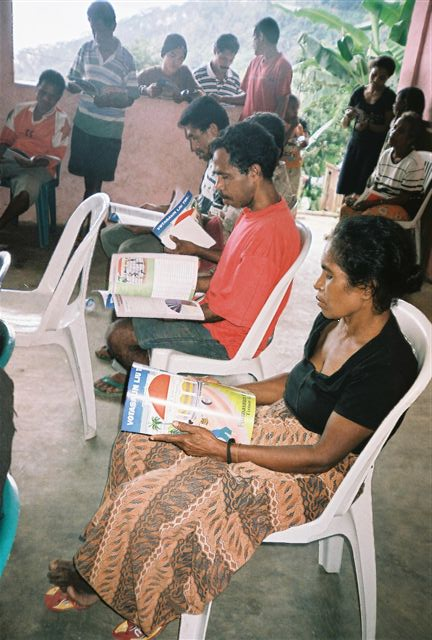|
Purpose: Promote free, fair, and credible 2017 national elections and help facilitate the smooth post-election transition of power. |
Location: Nationwide |
|
Partner: Consortium for Elections and Political Process Strengthening (CEPPS) |
Duration: June 2016 – June 2019 |
|
Cooperative Agreement: $4,000,000 |
|
|
Partner Contact: Dimitar Stojkov Chief of Party Email: dstojkov@iri.org |
USAID Contact: Germano Boavida Project Management Specialist Email: gboavida@usaid.gov |
Background:
Timor-Leste will hold both presidential and parliamentary elections in 2017. Since regaining independence in 2002, Timor-Leste has made significant strides toward establishing a representative democracy. While the country is considered less susceptible to the violent outbreaks that plagued the early days of independence, national institutions still lack the ability to effectively fulfill their representative and legislative functions. Timor-Leste continues to be steered by personality driven politics and few opportunities exist for women or young people to meaningfully participate in public life. Further, sub-national elections, a crucial step in the decentralization process, remain delayed.

Beyond the electoral cycle, Timorese citizens have little influence over official decision-making. A system characterized by a single constituency vote and an appointed municipal-level government limits entry points for citizens to engage in government affairs. Moreover, the National Parliament’s effectiveness is hindered by its staff’s lack of technical ability to research and draft legislation. The year 2012 marked a significant milestone in the country’s democratic transition when it successfully held presidential and parliamentary elections. With reduced, but still substantial, levels of United Nations (UN) technical assistance, election management bodies (EMB) administered the elections and oversaw the peaceful transfer of power. Continued democratic consolidation is dependent on the EMBs further developing internal capacity and maintaining high levels of electoral integrity, and political parties embracing a new generation of Timorese women and men in national and local governance. As members of parliament (MPs) and political parties prepare for parliamentary and presidential elections in 2017, they must commit to fostering grassroots support to ensure favorable outcomes for their party.
Over a three-year period, CEPPS will work with Timor-Leste’s EMBs, the National Electoral Commission (CNE) and the Technical Secretariat for Electoral Administration (STAE), political parties, civil society organizations and the post-2017 election National Parliament to execute programmatic goals.
Summary:
In June 2016, the Strengthening Inclusive Elections and Political Processes in Timor-Leste activity was awarded by the Mission to CEPPS. This three-year project seeks to help Timor-Leste strengthen and consolidate its democratic institutions by establishing more inclusive, responsive, and accountable government processes. CEPPS will build on the progress already made in Timor-Leste’s democratic development and continue to elevate marginalized voices so the Timorese government effectively represents its diverse communities.
The project’s work is focus on supporting STAE and CNE conduct of voter and civic education, and improve their outreach and communication, to complement support to STAE and CNE, civic and voter education support will also be channeled through local CSOs. Other aspect of the elections support is mobilizing international observer for the parliamentary elections and domestic observers for both parliamentary and presidential elections, support political parties’ capacity to engage in platform-based politics, conduct public opinion polling. Particular target of the project will be the participation of women, youth and Persons with Disabilities (PWDs) in the electoral process. A post elections component of the project will provide training to the technical staff of the National Parliament, improve parliamentarians’ public outreach and capacity to solicit public input on policy and proposed legislation, mobilize and train civil society for parliamentary monitoring, and strengthen political parties.







Comment
Make a general inquiry or suggest an improvement.